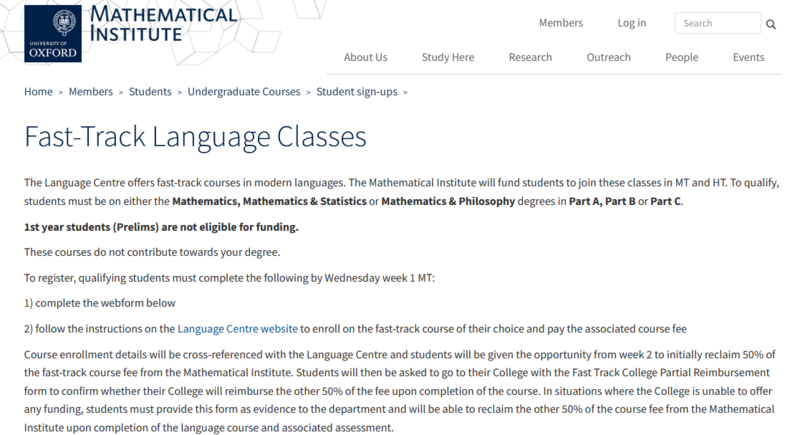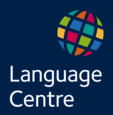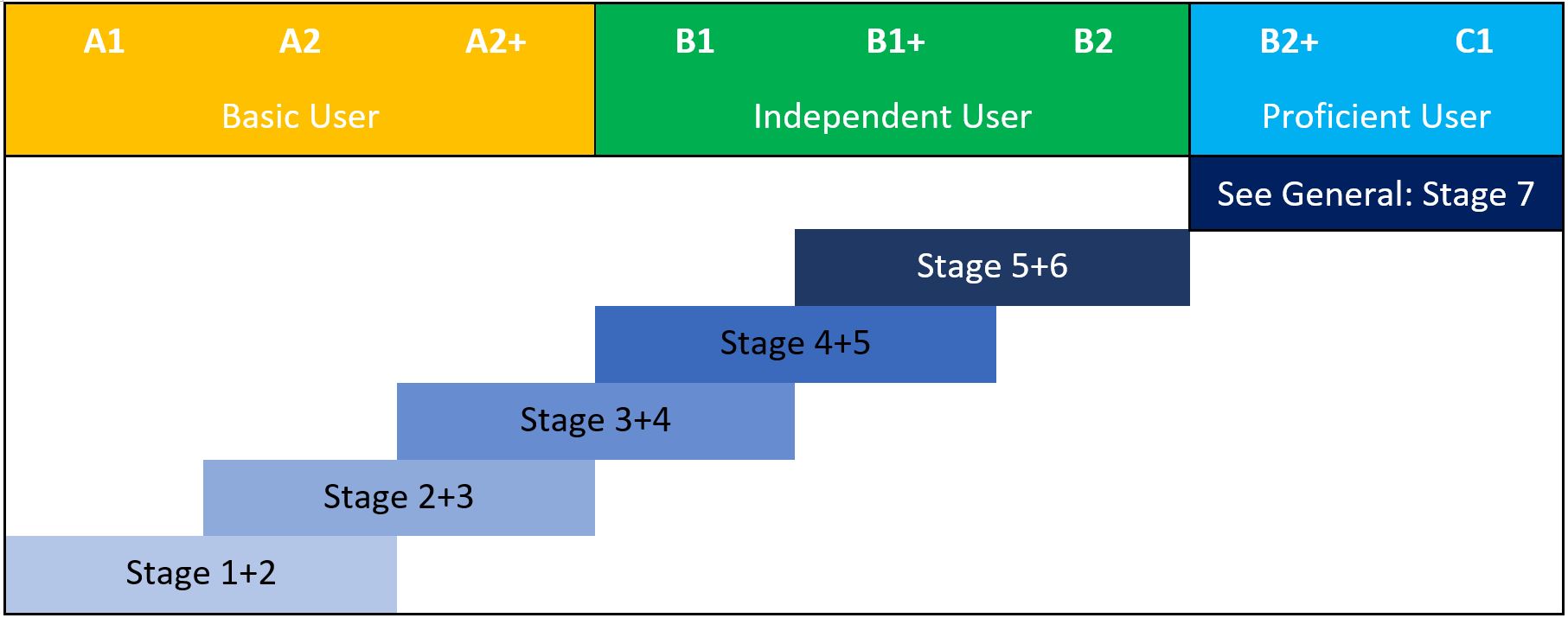If you are a 2nd, 3rd or 4th year undergraduate student of Chemistry, you can choose to take a Fast Track Language course as a Supplementary Subject option in French, German or Spanish.
You will receive information about the courses from your Faculty Office at the beginning of Michaelmas term.
In week 4, you will attend a meeting in which you can ask questions about the language courses.
In week 5, you will sit a preliminary language evaluation test to determine which Fast Track course you should join.
For this supplementary subject option there is a specific assessment framework:
| Hilary term |
Trinity term |
Hilary & Trinity terms |
| Written progress test (20%) |
Presentation and viva (50%) |
Portfolio of 5 pieces of oral and written productions in Canvas discussion fora selected by learners (30%) |
Courses will be offered in the following stages subject to demand and availability:
|
Stage 1+2
|
Stage 2+3
|
Stage 3+4
|
Stage 4+5
|
Stage 5+6
|
French
|
|
|
|
|
|
German
|
|
|
|
|
|
Spanish
|
|
|
|
|
|
Key Facts
- Chemists join the Fast Track courses in Hilary term and attend for two terms
- Entry: the deadline to register intention to enrol is noon on Thursday of Week 4 of Michaelmas term
- Courses are taught online
- One weekly 2-hour live session in small groups. The focus is on spoken interaction
- Assessments are contributory to your degree programme
For more information about how the Fast Track Language option fits into your course of study, please contact the dedicated administrator in your Faculty.
If you are an undergraduate student in Material Sciences, you may take a sponsored language option in years 1, 2 and 4.
Optional extra: In year 1 and in year 4, you can take a language course (Fast Track or General) as an optional extra, schedule permitting. You will pay up front but may apply for reimbursement upon completion.
Contributing towards your degree: In Year 2, you may take a Fast Track language course as a substitute for the Entrepreneurship module and hence it will count towards the degree. In this case, you must take a Fast Track course.
If you think you may wish to take the contributory language option in Year 2, we encourage you to take an optional extra course in that same language in year 1 already.
For information about reimbursement, please contact the Faculty of Material Sciences.
Students of Mathematics, Mathematics & Statistics, or Mathematics & Philosophy degrees in Part A, Part B or Part C are eligible for a sponsored place for any Fast Track course with the Language Centre. This sponsored place covers Michaelmas and Hilary term only and does not contribute towards the degree award.
If you are a student on one of the above degree programmes, you are entitled to receive funding for a Fast Track course in a language and level of your choice:
- Course enrolment details will be cross-referenced with the Language Centre and students will be given the opportunity from Week 2 to reclaim 50% of the fast-track course fee from the Mathematical Institute.
- Students may then wish to ask their College whether the College is willing to reimburse the other 50% of the fee.
Please note that Fast Track language courses do not contribute towards your degree. The assessment requirement is to evidence your engagement in the course.
Key facts
- Maths students attend in Michaelmas and Hilary term, but not in Trinity term
- Entry: first-come, first served
- Two conversation sessions per week (each lasting 1 hour) in groups of normally up to 6 learners online or 12 on in-person courses. The focus is on spoken interaction.
- A certificate of attendance if you have attended and engaged with at least 80% of the course may be produced upon request
- A certificate of completion following an in-class test, a reflective portfolio and a mini research project and presentation at the end of the course is awarded at the corresponding level of the CEFR (Common European Framework of Reference for Languages)
How to apply
To enrol on a Fast Track course under this scheme, qualifying students must complete the following by 12 noon on Wednesday of Week 1 of Michaelmas term:
- Click through to the language of your choice on the Language Centre website. Click on the enrol button next to the Fast Track course you would like to take. You will be directed to make full payment of the course fee, which is £545 in 2024/25. Please ensure you qualify for the funding by being on the appropriate degree course and year before paying for your course. (PLEASE NOTE: The default fee in the Cosy booking system is the staff cost. Your student status will be recognised through your SSO by the system as you progress through the checkout process, and the price will auto-correct to the student fee before you reach the payment page.)
- Register your course for sponsorship on the Mathematical Institute website via this webform.
- Go to your College with the Fast Track College Partial Reimbursement form filled in with the details of your course to confirm whether your College will reimburse the other 50% of the fee upon completion of the course. If not, please return the form evidencing that your college will not reimburse you to the Mathematical Institute.

If you are a 2nd, 3rd or 4th year undergraduate student in the Faculty of Physics, you can choose to take a Fast Track language course instead of a Physics short option. The languages offered are French, German and Spanish.
You will receive information about the courses from your Faculty Office at the beginning of Michaelmas term.
In Week 4, you will attend a meeting in which you can ask questions about the language courses.
In Week 5, you will sit a preliminary language evaluation test to determine which Fast Track course you should join.
For this supplementary subject option there is a specific assessment framework:
| Hilary term |
Trinity term |
Hilary & Trinity terms |
| Written progress test (20%) |
Presentation and viva (50%) |
Portfolio comprising: A reflective entry on your performance and learning objectives on 2 written and 2 oral recorded participations in online discussion forums and a reflection on your progress test performance (30%) |
Courses will be offered in the following stages subject to demand and availability.
| |
Stage 1+2 |
Stage 2+3 |
Stage 3+4 |
Stage 4+5 |
Stage 5+6 |
| French |
|
|
|
|
|
| German |
|
|
|
|
|
| Spanish |
|
|
|
|
|
Key Facts
- Physicists join the Fast Track courses in Hilary term and attend for two terms
- Entry: the deadline to register intention to enrol is noon on Thursday of Week 4 of Michaelmas term
- Courses are taught online
- One weekly 2-hour live session in small groups. The focus is on spoken interaction
- Assessments are contributory to your degree programme
For more information about how the Fast Track Language option fits into your course of study, please contact the dedicated administrator in your Faculty.





